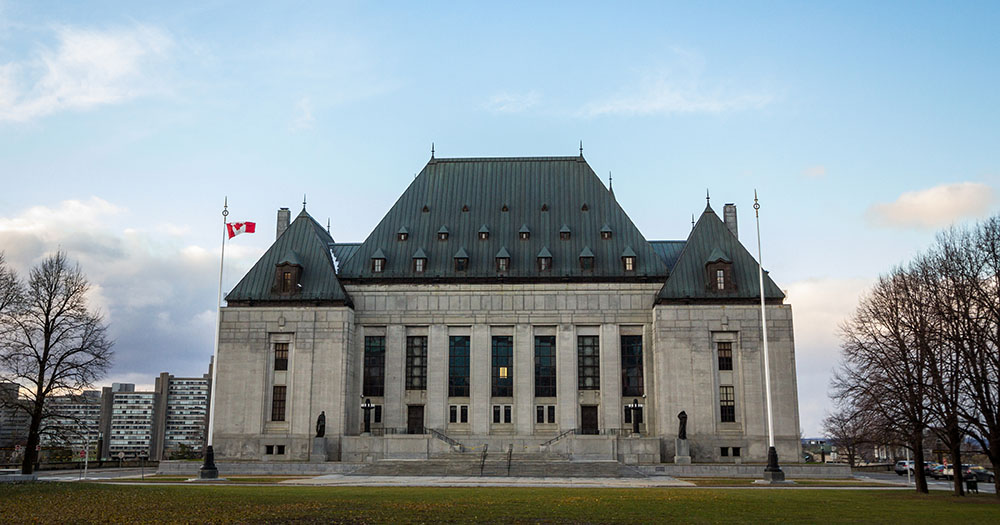Categories
Super Priorities and Unpaid Taxes in Canada

Super Priorities and Unpaid Taxes in Canada
“Tax legislation equips the government with very powerful tools to ensure that taxes are properly paid. One of those tools is the deemed trust… In this action, the Crown seeks to recover money that [TD Bank] received from one of its customers in payment of a loan secured by a mortgage. The Crown asserts that the customer failed to remit GST amounts that he had collected, thus bringing the deemed trust into operation… I am allowing the Crown’s claim. The legislation imposes an obligation on the Bank to repay the money it received from its customer and it necessarily excludes the defence of bona fide purchaser for value. Even if this result appears harsh, it was clearly contemplated by Parliament.”
See: Her Majesty the Queen v. The Toronto-Dominion Bank, 2018 FC 538
What Are Super Priorities?
Super priorities are statutory liens and deemed trusts in favour of the Crown against real property of a person that rank in priority to other registered security interests – even though the Crown liens are not required to be registered. Provisions in the Income Tax Act (the “ITA”), Employment Insurance Act (the “EIA”), the Canada Pension Plan (“CPP”) and other federal statutes in Canada (and provincial statutes for that matter) reference the broad definition of the term “security interest” in Subsection 224(1.3) of the ITA. Subsection 224(1.3) of the ITA defines the term “security interest” as:
[A]ny interest in property that secures payment or performance of an obligation and includes an interest created by or arising out of a debenture, mortgage, hypothec, lien, pledge, charge, deemed or actual trust, assignment or encumbrance of any kind whatever, however or whenever arising, created, deemed to arise or otherwise provided for;
Super priority liens under the ITA, EIA and other legislation will have priority over existing “security interests” registered against the debtor by third parties.[1]
However, the ITA, EIA and CPP and other federal legislation hold that trust claims are subordinate to a “prescribed security interest” which is defined by the applicable regulations of each statute to include a previously registered mortgage. Keep in mind that the previously registered mortgage exemption is limited. It applies to mortgages registered before source deductions were withheld and not remitted (in arrears), and only in relation to land and buildings (not any other collateral included in the mortgage documents). Outside of bankruptcy proceedings, Crown claims apply with full force, often rank in priority to registered security holders and must be examined on a statute by statute basis to determine which Crown claims rank in priority vis-a-vis each other and secured private lenders.
Deemed Trusts and Her Majesty the Queen v. The Toronto-Dominion Bank, 2018 FC 538 (the “TD Decision”)
The TD Decision reiterates that a borrower’s unpaid taxes can take priority over the registered interests of secured lenders. In the TD Decision, the borrower owed taxes to CRA in the form of unremitted GST, tax debts due in 2007 and 2008. In 2010, the borrower obtained a loan from TD Bank and secured the debt against his home. In 2011, the borrower sold his home and paid off TD Bank’s loan.
In 2013, CRA demanded that TD Bank remit to it nearly $100,000.00 in tax debts owed by the borrower. TD Bank refused to pay the tax debt. In 2015, CRA reduced its demand to $67,000.00. TD Bank continued to refuse to pay the reduced tax debt. CRA litigated in the federal court pursuant to section 222 of the Excise Tax Act (the “ETA”).
Section 222 of the ETA stipulates that if a debtor receives GST/HST funds and fails to pay them to the Crown, all of the debtor’s property is deemed to be held in trust for the Crown to secure the unpaid amount, and the trust ranks ahead of security interests. The deemed trust extends to the proceeds of sale of any real property held by the debtor, whether those funds are in the hands of the debtor or someone else.
The Crown employed tracing and argued before the Federal Court that since the borrower had not remitted funds earmarked for GST, the trust extended to all of his property, including his home. When the house was sold by the borrower, the proceeds ought to have been paid to the Crown. When they were instead paid to TD Bank, the bank was obligated to pay those funds to the Crown. TD Bank argued that they did not have proper notice of the tax debt owed to CRA by the borrower and had acted in a bona fide manner.
The Federal Court rejected this argument, finding that to allow such an excuse would neuter the deemed trust/super priorities regime in favour of the Crown as set out in the ETA and other federal legislation. The purpose of the Crown super priority over security interests is precisely designed to give the government pre-eminence over most registered security interests except limited prescribed security interests. The Court also rejected TD Bank’s argument that the Crown’s trust only became effective on notice of the debt being issued to TD Bank in 2013 – years after TD Bank’s loan was paid out. The deemed trust provisions of the ETA and other federal legislation do not “hover” over the debtor’s property like Damocles’ sword – only applying to the property of the debtor at some particular triggering or crystallizing event. Deemed trusts start to apply the moment that the debt obliged to be paid is not paid. TD Bank was ordered to pay the tax debts owed by the borrower, plus interest.
What is a Solicitor to Do in Light of the TD Decision?
Lenders need to be reminded that they must conduct thorough due diligence on a potential borrower, particularly in the context where the borrower is self-employed and otherwise responsible for remitting source deduction taxes to the Crown. As noted earlier in this tip sheet, the LSO expects Lenders to conduct a great deal of due diligence when assessing fraud. Similar due diligence ought to be conducted by lenders when assessing tax debts, deemed trusts and lending risk.
Unfortunately, there are limits to what a solicitor can do to verify payment of source deductions in these circumstances. For example, federal and provincial privacy laws restrict what information tax revenue collection agencies can release to third parties without the registrant’s explicit written consent.[2] In a purchase and sale scenario (potentially involving vendor takeback financing), a general concern of a deemed trust (note: not registered on title to real property) may be difficult to frame as a proper subject for a Vendors and Purchasers Act motion.[3]
Confirm Title Insurance Coverage
Most title insurers offer coverage or endorsements for super priority liens for lender policies (potentially subject to various exclusions and exceptions, depending on the specific facts of a transaction). It should be noted that title insurance claims on lender policies related to super priorities often arise when the title-insured mortgage goes into default. A typical scenario might be a circumstance where: (a) the title insured lender is not aware of deemed trust super priorities owed by the borrower to CRA prior to issuance of the title insurance policy (tax debt owed before the policy date is key); (b) the title insured lender triggers a power of sale and is facing a claim by CRA ranking in priority to the lender’s security for tax debts owed pre-policy date; and (c) the proceeds of the sale of the property will result in a shortfall for the title insured lender after payout of CRA’s super priority for pre-policy date tax debts. In scenarios such as this, there may be coverage available under a policy of title insurance. Verify with your title insurer.
The complexity of deemed trusts – particularly when mortgages are being issued by private lenders to risky prospects or distressed borrower scenarios – necessitate that the solicitor must confirm what coverage is available from the title insurer and the limits, exceptions and exclusions to such coverage. Where coverage is excepted completely or limited, a solicitor must document the limits of such coverage to their lender client and confirm instructions to either investigate further (subject to privacy legislation) or proceed in spite of such potential for risk (particularly in light of the TD Decision).
For more information on deemed
trusts, mortgages and how unpaid debts may impact an agreement of purchase and
sale, contact the real estate lawyers at Merovitz Potechin LLP.
[1] SEE: Subsection 227(4.1) of the ITA and Subsection 2201(1) of the Income Tax Act Regulations, C.R.C., c. 945, Subsection 86(2.2) of the EIA and Subsection 4.1(1) of Insurable Earnings and Collection of Premiums Regulations, SOR/97-33, Subsection 23(4.1) of the CPP and Subsection 8.3(1) of the Canada Pension Plan Regulations, C.R.C., c. 385.
[2] See: MCAP Service Corporation v. Hunter, 2005 CanLII 47759 (ON SC) at para. 36.
[3] See: Gazeta Inc., Re, 2005 CanLII 25187 (ON SC) at para. 8.
The content on this website is for information purposes only and is not legal advice, which cannot be given without knowing the facts of a specific situation. You should never disregard professional legal advice or delay in seeking legal advice because of something you have read on this website. The use of the website does not establish a solicitor and client relationship. If you would like to discuss your specific legal needs with us, please contact our office at 613-563-7544 and one of our lawyers will be happy to assist you.





